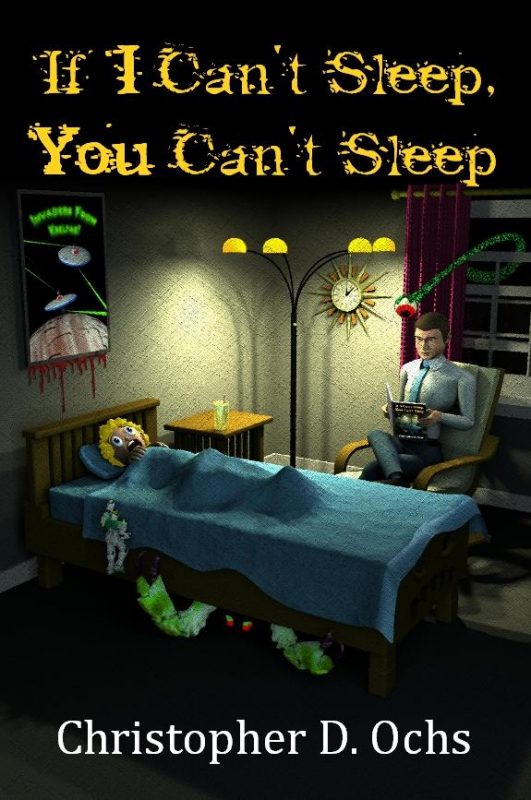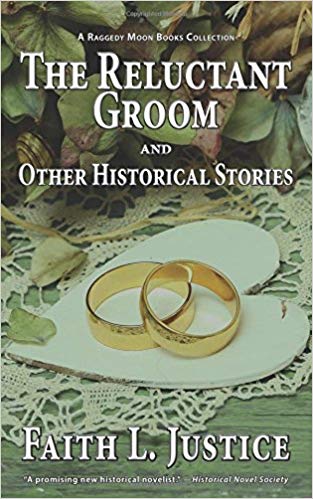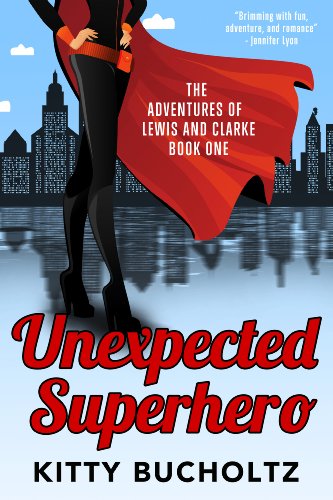Happy Birthday, OCC!
October 6, 2015 by Linda O. Johnston in category Pets, Romance & Lots of Suspense by Linda O. Johnston, Writing Conferences tagged as Birthday Bash 2015, Linda O. JohnstonBut that doesn’t mean I’ll fail to wish OCC a Happy Birthday. In fact, consider this blog my birthday wish!
I gather, from the OCC website, that this will be the chapter’s 34th birthday. That’s really exciting, especially considering that it has been, and remains, an especially dynamic chapter. We’ve got lots of published authors as well as many romance writers who are heading that direction. The chapter, and its members, have helped every one of us at whatever writing level we are. We’ve all watched and participated in how much the industry has changed over time. It’s wonderful!
I’ve been a member for over twenty years and have always loved it. I intend to remain a member for years to come, and to continue to attend as many meetings as possible. Unfortunately, it won’t include this one.
So, again, Happy Birthday, OCC. Have a wonderful celebration… without me.
Linda
O?
Linda O! Johnston
www.LindaOJohnston.com
BITE THE BISCUIT, A Barkery & Biscuits Mystery
KNOCK ON WOOD, a Superstition Mystery, October 2015
CANADIAN WOLF, an Alpha Force Harlequin Nocturne
PROMO CARDS
October 5, 2015 by Tracy Reed in category Pink Pad by Tracy Reed tagged as Marketing, Peper Winter, Promo Cards, Tracy ReedI have been researching marketing ideas as I prepare to release my next couple of books. I’ve talked about my series The Alex Chronicles in past posts. As I prepare to launch the prequel and the first full-length book in the series, I’m thinking about the marketing plan. Ask any writer and they’ll tell you, writing the book was easy…promoting it is something altogether different.
I’m finishing up minor edits on Alex one and decided to start researching the follow up to Generational Curse, which means I’ve been reading, a lot. I got the first book in Pepper Winter’s series, Indebted for free and got hooked. It’s a romantic suspense with a lot of heat. Anyway, I wanted to know more about the series and visited her website and Pinterest page. What I found on Pinterest was rather intriguing. There seemed to be these cards or images with dialogue dropped on top. The images were meant to represent the hero and heroine of the series.
This marketing concept may not seem new to everyone, but to me, it was a brilliant way to market a book or anything for that matter. Use basic stock images that represent scenes, characters, locations, objects or whatever and drop dialogue on top. You can take it one step further and add an excerpt for a pin or blog post. It’s an easy way to grab readers attention on a book or series.

This simple idea really stuck with me, so I made a few Promo Cards for my books Generational Curse and The Good Girl. These promo cards come in handy. If I’m stuck or behind on posting on my blog, I post one of these cards along with an excerpt. Or if I’m running a special price on a book, these are great for posting about a special price without being too pushy. Plus, they’re perfect for my social media outlets. It’s a great way to get the word out for your book when you have limited space.
The good thing about this marketing idea, is all you need is a stock image and an excerpt or a couple of lines from your book. These are definitely my favorite digital marketing tool. If you want to go old school, print them and use as post cards or book markers. I also use mine for the home page flash on my website. The possibilities for use are unlimited.
Here are some of the promo cards I did for my books.
GENERATIONAL CURSE PROMO CARDS
THE GOOD GIRL PROMO CARDS
Tracy Reed
readtracyreed@me.com
www.readtracyreed.com
Fiction for Women Who Love God, Couture and Cute Guys
Available at
Amazon.com
Barnes and Noble
iTunes
All Romance eBooks
KDP Select Ad Results August 2015 by Kitty Bucholtz
September 9, 2015 by Kitty Bucholtz in category It's Worth It by Kitty Bucholtz tagged as advertising, Author promotion, It's Worth It, KDP Select, Kitty Bucholtz, self publishing, self-publishing
My New and Hopefully Lucky Romance Release
September 6, 2015 by Linda O. Johnston in category Events, Pets, Romance & Lots of Suspense by Linda O. Johnston tagged as A Superstition Mystery, Harlequin Nocturne, Linda O. Johnston
 Will that consist of the same readers? Not necessarily. I realize that, and of course I’ve blogged here before at A Slice of Orange about writing in multiple genres, and all the different kinds of conferences I consequently wind up attending.
Will that consist of the same readers? Not necessarily. I realize that, and of course I’ve blogged here before at A Slice of Orange about writing in multiple genres, and all the different kinds of conferences I consequently wind up attending. THE ALEX CHRONICLES PREQUEL TEASER
September 5, 2015 by Tracy Reed in category Pink Pad by Tracy Reed tagged as Edgy Christian Fiction, The Alex Chronicles, the writing process, Tracy ReedPart Two: A Funny Thing Happened On The Way To My First Book..sort of
I’m about to launch the prequel to my first born, The Alex Chronicles…Girlfriends & Secrets. I talked about this little novelette last month in my post, A Funny Thing Happened On The Way To My First Book. You can sort of say this is part two to that post.
As I mentioned last month, this is the first book I wrote. When I wrote the book, I had aspirations of book tours, radio interviews and a fantasy of being on The View. Hey, if you don’t dream big, you’ll never get any where.
However, after I wrote the first three books in the series, it seemed the entire dynamic of the romance genre shifted. I credit or blame Fifty Shades of Grey. The protagonists or heroes were no longer just good looking men. They were now these incredible, super sexy males. Really, have you ever really seen a man with thighs that could bust a watermelon…that’s a line from one of my upcoming books. Or what about a man with hair like flaxen gold and a behind so tight a quarter could bounce off of it. I’ve been to the gym okay, I’ve been to a gym and around construction sites and I’ve yet to see a behind that tight. Take that back, I did see the season finale of “Ballers†and got a good look at The Rock’s behind. Not to mention John Cena in “Trainwreckâ€, I think that tight-quarter-bouncing behind title could legitimately be applied to both of them.
As I was saying, the dynamic had changed. When I wrote the first draft of The Alex Chronicles, my protagonist was my version of very handsome. Did you catch that phrase, my version. See one of the things that tripped me up about the new descriptions in romance fiction, was taste. Every one has their version of what’s hot, sexy, handsome, unattractive [I didn’t want to say ugly], cute, and the list goes on. This was a dilemma for me. What I liked physically, didn’t always match up with what some of my readers liked.
I’ve read a lot of books the past couple of years. compared to the past, I’m breaking my own reading records. Apart from being very tall, most of the protagonists had large…body parts and mesmerizing eyes, but it was their character that stood out. No matter how roguish, devious, freaking, sadistic, crazy or stupid, they are, deep down, they all have big hearts. And very, very, very, big wallets.
I had dinner with a friend and told her, I had to re-write The Alex Chronicles, because the protagonist wasn’t rich enough. Let me clarify. When I wrote him, it was with the intention that he was rich. Well in the new romance world, it wasn’t good enough for him to just be rich or a millionaire, he needed to be a billionaire. And he has to have a private plane, luxury yacht, mansion and penthouse apartment on top of his own building…is the new normal. When did this happen? And to make it worse, I saw a book that was touting the word Trillionaire. Come on people, let me catch up.
Which brings me to my series. When it was first written, the heroine’s ex-husband was a decent level millionaire, but her new love interest was richer than the ex. When I did the rewrite, I made it a point not to mention how much he’s worth. Instead, I elude to it by the gifts and things he does for her. Welcome to the new contemporary romance protagonist. Is it even possible that such a man exists? I choose to believe that somewhere there’s a woman living out one of my books. I’m open to living out my own romance novel. If anyone knows a tall dark chocolate billionaire in search of a petite curvy mocha wife, send him my way. Really, who better to live out one of my books then me.
So what’s The Alex Chronicles about? It’s the story of five best friends and a pact they made in college. It seems kind of childish that five grown women would still be beholden to something so silly. That’s what one of their boyfriends said later in the series. But it’s something that worked for them…when they were in college. Now that they’re adults and dealing with the day to day things of life, it’s not so easy.
The Alex Chronicles: Girlfriends & Secrets will be out in October. It’s also my first perma free book. I can’t believe I’m going to say this, “I’m glad have a free book.†I’ve been waiting for this opportunity. Offering this book free, is my major marketing step for this series. I’ll keep you posted on how my first born does. In the meantime, here’s the first chapter in the prequel:
who are we…
ALEX
MY NAME IS ALEXANDRA SIMONE Miller and I am a fashion addict. Isn’t that how they make you introduce yourself at those addiction anonymous support group meetings? At least that’s what I’ve heard. I tried kicking the fashion habit, but it’s a little difficult when there are so many talented dealers, I mean designers tempting me. I know somewhere there has to be a support group for people like me. I think it meets at Neiman’s or Barneys. I heard a rumor that if you’re really bad they sentence you to aversion therapy at Bergdorf’s…I wish.

So the last thing a person like me should do is own a boutique. Fashion is a drug and not only am I a junkie, I’m also a dealer and the base of my operation is my boutique, “Alex Simone”.
Alex Simone is my baby. It’s a place where women come to escape and fantasize. We encourage women to try things on, because that usually leads to buying. Shopping at one of my boutiques is like playing “dress up” in the ultimate fantasy closet, complete with designer ready-to-wear and vintage couture.
Not only am I a fashion addict, I’m also a borderline workaholic. I say borderline, because I do manage to eek out time to spend with my friends.
My girlfriends are like family. People always ask how we met. I think that’s the one thing we haven’t been able to agree on.
Let’s see. Taylor is my cousin on my dad’s side. She and I have always been close. She’s really more like an older sister. I think we have shared secrets none of the other girls know about. But there’s that one thing that happened in Paris. I think I didn’t tell her because I knew she would have been disappointed in me.
Anyway…she was going to school in Atlanta and she said I’d like it. Not only because it was crawling with good looking guys, but because it had a great liberal arts program. To be honest, I needed to get out of the city. A dose of Southern living was a welcome change. So I applied and got in. That’s where I met Chloe.
When I went for my college tour, the two of them had me running around town. I don’t think I got more than twenty hours of sleep the entire week, but I had a good time. These two had the hook up for everything.
The year after I got there, I met this girl named Dionne in Humanities class. We started talking and it turned out, she was from California. She kept saying I reminded her of her roommate, Kendell. When I finally met Kendell, I was shocked at how much we looked alike. We played a little game of Twenty Questions and discovered the reason we looked so much alike was because we were related.
Kendell is my cousin on my mother’s side. Her father and my mother are half siblings. We share our grandfather’s eyes, smile, skin color and height. When I first saw her, I thought I was looking at myself minus the upstairs endowment from my grandmother. My mother and Kendell’s father have the same father. My Grandfather Cyrus had a roaming eye along with some other things. He was married to my Grandmother while he played house with Kendell’s grandmother. He fathered a total of nine children, my mother and her three sisters, and Uncle Chester and his four brothers.
I think we’ve managed to stay friends as long as we have because we’re so different. It’s like we balance each other out.
Oh, yeah, I was talking about secrets and being impulsive. Of my group, I’m considered the rational one. I don’t see how I got that label. My friends say it’s because I’m a planner and would never do anything impulsive. That’s just not true. I do a lot of impulsive things, they just don’t know about them.
Jonathan and I had been together off and on for ten years. If you ask my friends, they’d say more off than on. And as much as I don’t want to agree with them, they’re right.
By the time we graduated, he had proposed…the first time. Much too soon. We barely knew each other. I moved back to Los Angeles. He followed me to California and took a job in Los Angeles so we could work on our relationship. We agreed to table the marriage question until later.
The magazine I interned for in Paris offered me a Junior Fashion Editor position in their Los Angeles office, but I turned it down. I know it sounds foolish, but there were things going on in my personal life that made me re-think what I wanted to do with my life.
I had come into a large sum of money, and decided to open a boutique. I love what I do. It’s taken me a while to gain the respect of the local fashion community, but it was well worth the hard work, and a huge step of faith.
Alex Simone is a place for women with curves, or real women. We stock most sizes, but we are known as the go to store for curvy women who love designer clothes. We’re not a plus size store per se, but in Southern California, a store that stocks anything over a size twelve is considered plus size. We just make it a point to offer designer clothing for women in a larger range of sizes. Curves, sensuality, and confidence are our business, and we know how to handle all three.

Turns out, all those times he was proposing to me, he had a side piece in Long Beach. He’d tapped that piece so much he slipped up one night and forgot to suit up. So when he wanted to get back together he confessed. Like the idiot head I was, I took him back. He even introduced me to his side piece and their son.
This time was different. We went engagement ring shopping and were making wedding plans. Jonathan agreed to counseling, and I was even warming up to the idea of marriage and being a step mother. I still wasn’t happy about having his side piece, I mean ex-side piece, in our lives, but she came with the kid.
The last time he proposed, we didn’t tell anyone. Instead, he gave me an ultimatum, “Marry me when I return from my conference in two weeks. If you back out, it’s over for good.†I still hear those words replaying in my head, followed by a sharp chill in my bones.
The day before I was to leave to surprise Jonathan, I got a phone call from one of his friends who was attending the conference. Jonathan had had a massive heart attack and died. I was devastated. My girlfriends rallied and helped me, despite their feelings about Jonathan.
Instead of planning a wedding, I planned his funeral.
I introduced him to Dionne. The sparks flew and a few months later, they were married. Ever since I planted a good man into her life, she feels the need to do the same for me. I really wish she’d stop, but she won’t. After her last little matchmaking effort, I threatened to cancel our friendship.
She invited me to dinner with her and Quentin and left out one very important detail. When I arrived, Quentin met me at the door with a glass of wine.
“I’m sorry, I didn’t know.â€
I didn’t understand what he meant. I took the glass, stepped inside and sitting on the sofa talking to Dionne was a shiny yellow brother with a pony tail hanging down his back. Dionne looked up and noticed I was heading out the door. She jumped up, walked over and pulled me over to the sofa and introduced me to my “date”.
When he stood up, it was even worse. He was wearing a powder blue suit, navy blue shirt with the buttons undone to reveal his Mr. T gold chain collection sitting on a bed of tight black curls. I don’t like hairy men. I turned the glass up finishing the fine red wine in one gulp. This definitely would have been a good time to start drinking hard liquor. Saying I was a little pissed with Dionne would have been like calling a broken leg a sprain.
I looked at Dionne wondering what she could have been thinking. I looked down at my “date’s†feet, and staring back at me were light blue patent leather brogues and matching socks. I didn’t know what to think, but I knew what to say. I just didn’t want to say it out loud.
“Excuse me.†I put my empty glass on the table and hurried down to the powder room. “Okay God, I know Dionne meant well, but…really…what was she thinking?†I let out a sigh, touched up my lipstick and took that long walk out to the worst blind date of my life.
“Are you all right Alex?†Dionne asked.
I couldn’t believe she stood there with a smile on her face asking me if I was all right? Of course I wasn’t all right! I stood staring at one of my best friends, wondering at what point did she think setting me up with a black Smurf was a good idea.
“I’m…†Quentin handed me another glass of wine. “Thank you.â€
“Sorry, it’s not something stronger,†Quentin whispered.
“So am I.†I turned up the glass and gulped half in one swallow. “I’m sorry, I didn’t get your name.â€
“Eddie.â€
During dinner, Eddie the black Smurf sat sneering at me like I was a piece of cornbread he wanted to slop up with some greens. I looked across the table at this person my friend set me up with, and wondered how much longer I would have to endure this fiasco. Watching him eat was almost as disturbing as looking at him in that light blue suit. I closed my eyes and pretended I was someplace else.
In my mind, I was on a remote island with a hot, sexy, dark chocolate man. He was feeding me strawberries, the juice running down the side of my mouth He gently caught the sweet juice with his soft, full lips. If Dionne was going to fix me up, why couldn’t it have been with the man in my fantasy, instead of Eddie the black Smurf? When I opened my eyes, Eddie the Smurf, was still talking incessantly about his ex-wife and his massive alimony payments.
When I was in the powder room earlier, I had set a “911 dating alert.†That’s when you set the alarm on your phone to ring at a certain time. Once you pick up “the call” you become an Academy Award winning actress, and recite your escape monologue. My cousin Taylor hipped me to that little trick, and over the years I got very good at using it. So tonight, when I saw the black Smurf, I knew what I had to do.
“Okay…no, I understand…uh huh…I’ll be right there.†I went back into the dining room, made my apologies and left.
Before Dionne got with Quentin, she dated… let’s just say… she always managed to…she’s a sweet heart, but…it seemed she was always dating someone else’s Boaz. Like the guy who only wore Los Angeles Lakers attire. He didn’t care if it was basketball season or not. And when the occasion called for something a little “more dressyâ€, he broke out his favorite purple suit and accessorized it with a white and yellow striped shirt and Lakers tie. I caught a glimpse of the jacket lining once. Inside he had the entire Lakers starting line-up hand painted on the lining. I had one word for him and it wasn’t “Fantasticâ€. It was “Fanatical”. Dionne thought he was the one…her Boaz. That’s if Boaz was a basketball fanatic and a tacky dresser. His idea of a romantic night out was to take her to his favorite sports bar, “Nothin’ But Net†for happy hour. They got along great until she disagreed with him over the Lakers draft choice. He dropped her like a long distance three pointer… “swish”.

She’s my girl, but I couldn’t take another day listening to her blame herself for her relationship falling apart. So, I arranged a little impromptu meeting between her and Quentin at the store. They hit it off ,and now three years later she’s trying to do the same thing for me.
If my girlfriends knew about my plans to elope with Jonathan they wouldn’t be too surprised.
What’s my secret? All I’ll say is, I have the power to destroy one of the wealthiest families on the West Coast. That power could also cost me my life. But if pushed, that’s a risk I might be willing to take.
The Alex Chronicles Series will be starting in October
Tracy Reed
readtracyreed@me.com
www.readtracyreed.com
Fiction for Women Who Love God, Couture and Cute Guys
Available at
Amazon.com
Barnes and Noble
iTunes
All Romance eBooks
Affiliate Links
A Slice of Orange is an affiliate with some of the booksellers listed on this website, including Barnes & Nobel, Books A Million, iBooks, Kobo, and Smashwords. This means A Slice of Orange may earn a small advertising fee from sales made through the links used on this website. There are reminders of these affiliate links on the pages for individual books.
Search A Slice of Orange
Find a Column
Archives
Featured Books
IF I CAN’T SLEEP, YOU CAN’T SLEEP
Disturbed and Disturbing Bedtime Reading to Inflict on Naughty Children . . . Of All Ages
Five fairy tales and five short stories to perplex and disturb!
ONE TASTE TOO MANY
For culinary challenged Sarah Blair, there’s only one thing scarier than cooking from scratch—murder!
More info →THE RELUCTANT GROOM AND OTHER HISTORICAL STORIES
Enjoy historical fiction? Like short stories? Then dive into this collection of historical shorts by an award-winning author.
More info →Newsletter
Contributing Authors
Search A Slice of Orange
Find a Column
Archives
Authors in the Bookstore
- A. E. Decker
- A. J. Scudiere
- A.J. Sidransky
- Abby Collette
- Alanna Lucus
- Albert Marrin
- Alice Duncan
- Alina K. Field
- Alison Green Myers
- Andi Lawrencovna
- Andrew C Raiford
- Angela Pryce
- Aviva Vaughn
- Barbara Ankrum
- Bethlehem Writers Group, LLC
- Carol L. Wright
- Celeste Barclay
- Christina Alexandra
- Christopher D. Ochs
- Claire Davon
- Claire Naden
- Courtnee Turner Hoyle
- Courtney Annicchiarico
- D. Lieber
- Daniel V. Meier Jr.
- Debra Dixon
- Debra H. Goldstein
- Debra Holland
- Dee Ann Palmer
- Denise M. Colby
- Diane Benefiel
- Diane Sismour
- Dianna Sinovic
- DT Krippene
- E.B. Dawson
- Emilie Dallaire
- Emily Brightwell
- Emily PW Murphy
- Fae Rowen
- Faith L. Justice
- Frances Amati
- Geralyn Corcillo
- Glynnis Campbell
- Greg Jolley
- H. O. Charles
- Jaclyn Roché
- Jacqueline Diamond
- Janet Lynn and Will Zeilinger
- Jaya Mehta
- Jeff Baird
- Jenna Barwin
- Jenne Kern
- Jennifer D. Bokal
- Jennifer Lyon
- Jerome W. McFadden
- Jill Piscitello
- Jina Bacarr
- Jo A. Hiestand
- Jodi Bogert
- Jolina Petersheim
- Jonathan Maberry
- Joy Allyson
- Judy Duarte
- Justin Murphy
- Justine Davis
- Kat Martin
- Kidd Wadsworth
- Kitty Bucholtz
- Kristy Tate
- Larry Deibert
- Larry Hamilton
- Laura Drake
- Laurie Stevens
- Leslie Knowles
- Li-Ying Lundquist
- Linda Carroll-Bradd
- Linda Lappin
- Linda McLaughlin
- Linda O. Johnston
- Lisa Preston
- Lolo Paige
- Loran Holt
- Lynette M. Burrows
- Lyssa Kay Adams
- Madeline Ash
- Margarita Engle
- Marguerite Quantaine
- Marianne H. Donley
- Mary Castillo
- Maureen Klovers
- Megan Haskell
- Melanie Waterbury
- Melisa Rivero
- Melissa Chambers
- Melodie Winawer
- Meriam Wilhelm
- Mikel J. Wilson
- Mindy Neff
- Monica McCabe
- Nancy Brashear
- Neetu Malik
- Nikki Prince
- Once Upon Anthologies
- Paula Gail Benson
- Penny Reid
- Peter Barbour
- Priscilla Oliveras
- R. H. Kohno
- Rachel Hailey
- Ralph Hieb
- Ramcy Diek
- Ransom Stephens
- Rebecca Forster
- Renae Wrich
- Roxy Matthews
- Ryder Hunte Clancy
- Sally Paradysz
- Sheila Colón-Bagley
- Simone de Muñoz
- Sophie Barnes
- Susan Kaye Quinn
- Susan Lynn Meyer
- Susan Squires
- T. D. Fox
- Tara C. Allred
- Tara Lain
- Tari Lynn Jewett
- Terri Osburn
- Tracy Reed
- Vera Jane Cook
- Vicki Crum
- Writing Something Romantic
Affiliate Links
A Slice of Orange is an affiliate with some of the booksellers listed on this website, including Barnes & Nobel, Books A Million, iBooks, Kobo, and Smashwords. This means A Slice of Orange may earn a small advertising fee from sales made through the links used on this website. There are reminders of these affiliate links on the pages for individual books.

















































